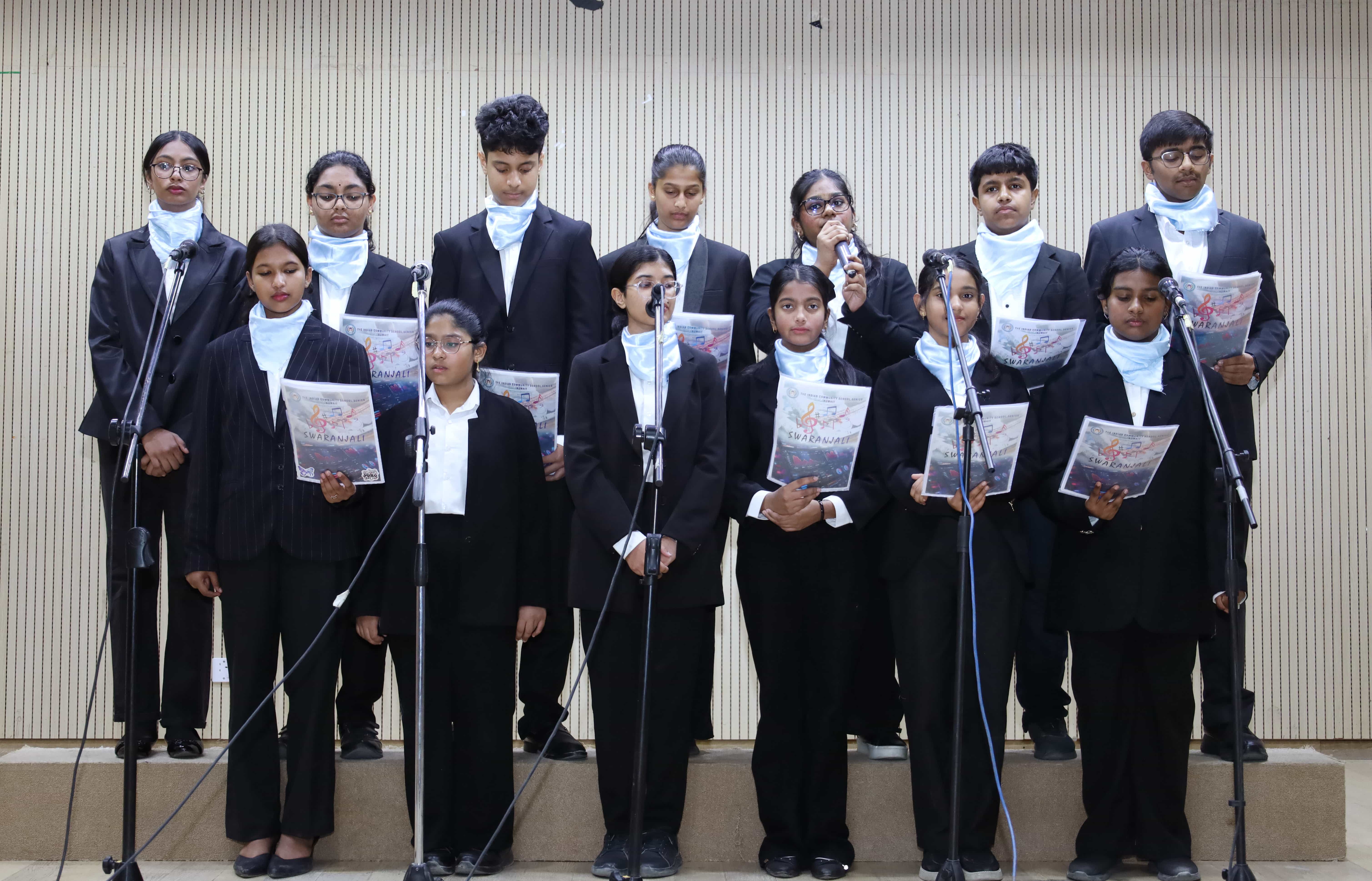The Indian Community School, Kuwait Marks Milestone with First- Ever Model United Nations
The Indian Community School, Kuwait Marks Milestone with First- Ever Model United Nations
 The Indian Community School, Kuwait, hosted its first-ever Model United Nations (ICSK-MUN) on the 19th and 20th of September 2025, providing an excellent platform for students to step into the roles of diplomats and world leaders. The two-day event, which saw the participation of 43 delegates representing various countries, aimed to foster leadership, research, public speaking, and negotiation skills while encouraging critical thinking on pressing global issues.
The Indian Community School, Kuwait, hosted its first-ever Model United Nations (ICSK-MUN) on the 19th and 20th of September 2025, providing an excellent platform for students to step into the roles of diplomats and world leaders. The two-day event, which saw the participation of 43 delegates representing various countries, aimed to foster leadership, research, public speaking, and negotiation skills while encouraging critical thinking on pressing global issues.
The conference commenced on 19th September with an inaugural ceremony graced by the eminent Chief Guest, Mr. M. P. Joseph IAS, Former Indian and UN Civil Servant and Advisor in the Rank of Additional Chief Secretary, Government of Kerala. The ceremony began with the recitation of verses from the Holy Quran followed by a melodious prayer song by the school choir Swaranjali. Dr. V. Binumon, Principal and Senior Administrator of ICSK, extended a warm welcome to the gathering. In his address, he emphasized the school’s continuous efforts in building students’ skills while providing them platforms to showcase their talents. He highlighted how MUN serves as a wonderful opportunity to reflect upon global issues and instills personality, vision, courage, and responsibility in every delegate.
Addressing the gathering, the Chief Guest, Mr. M. P. Joseph IAS congratulated the institution for successfully hosting its first MUN. He elaborated on the objectives of the United Nations, the functioning of its various committees, and their role in maintaining global peace. He formally inaugurated the ICSK-MUN and unveiled its logo, marking a historic moment for the school. His address reflected the true spirit of leadership and public service, leaving a strong impression on the young delegates.
Mst. Sanjit Velu, Secretary-General of ICSK-MUN proposed a vote of thanks and declared the session open. Following the official committee photographs, the delegates moved into their respective sessions, setting the agenda, delivering speeches, and engaging in moderated and unmoderated caucuses.
Two key committees formed the core of this year’s conference. The Disarmament and International Security Committee (DISEC) deliberated on the theme “Regulating the Use of Autonomous Weapons in Armed Conflict”, a topic addressing the ethical, legal, and humanitarian implications of artificial intelligence in warfare. Meanwhile, the United Nations Office on Drugs and Crime (UNODC) engaged in discussions on “Tackling Nautical Piracy and Its Criminal Affiliations”, focusing on the global menace of piracy and its ties to organized crime and terrorism. Vigorous debates, thoughtful speeches, and constructive collaborations defined the sessions, as delegates showcased their research and diplomacy in drafting resolutions.
Delegates represented 23 countries, including USA, Australia, England, Kenya, China, Indonesia, Ukraine, Russia, Japan, South Korea and India, ensuring a diversity of perspectives and enriching the quality of debate.
The second day witnessed intensified deliberations and the finalization of draft resolutions. The conference concluded with a grand valedictory ceremony in the school auditorium, graced by the Guest of Honour, Dr. Divakar Chaluvaiah, Former President of the Indian Doctors Forum, Kuwait. The day began with an Islamic prayer, followed by a welcome address delivered by Mrs. Susan Rajesh, Vice Principal of ICSK, who congratulated the delegates for their remarkable efforts and expressed her hope to see them represent India at the United Nations in the future.
A special highlight of the day was the video presentation, “Glimpses of ICSK-MUN 2025”, which beautifully captured the vibrant moments, passionate debates, and the collaborative spirit of the two-day conference. The presentation offered the audience a visual journey through the intense committee sessions, interactions, and behind-the-scenes efforts that made the event a grand success.
Dr. Divakar Chaluvaiah, in his address, praised the dedication and preparation of the delegates. He encouraged students to think critically, debate thoughtfully, and choose dialogue over conflict, stressing the importance of cooperation in solving global challenges. This was followed by inspiring addresses by Secretary-General Mst. Sanjit Velu and the committee chairs, Ms. Sana Fatema and Ms. Haadiya Sheikh, who expressed their gratitude towards the school for providing a platform for young leaders to engage in meaningful discourse.
The highlight of the evening was the presentation of awards to outstanding delegates. The award for Best Delegate was conferred upon Miss Shannon (Kenya) in UNODC and Mr. Zohair Abbas Ali (USA) in DISEC. The Best Position Paper award was secured by Mr. Andrew (Djibouti) in UNODC and Miss Sarah Ann (Ukraine) in DISEC. The title of Honorable Mention went to Miss Farah (USA) in UNODC and Miss Ruth (Russia) in DISEC. The Diplomatic Commendation was awarded to Miss Kashni (Indonesia) in UNODC and Miss Prisha (India) in DISEC, while the Most Improved Delegate award was presented to Mr. Suryansh (France) in UNODC and Miss Reddhi (South Korea) in DISEC.
The event concluded with a heartfelt vote of thanks by Ms. Prisha Savla, Member of the ICSK-MUN Secretariat, followed by a group photograph of all delegates, encapsulating the spirit of unity and achievement.
The first-ever ICSK-MUN not only enhanced students’ knowledge of international affairs but also instilled in them the values of teamwork, respect for diverse perspectives, and the art of consensus-building. The success of ICSK MUN highlights the school’s unwavering commitment to nurturing globally-minded leaders of tomorrow.












